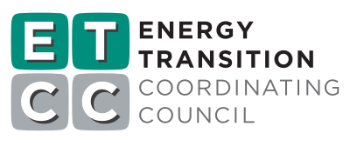Project Info
ACTIVE
Project Title
Enhanced Normalized Metered Energy Consumption Analysis with Rapid Interventions
Project Number ET23SWE0045 Organization SWE (Statewide Electric ETP) End-use HVAC Sector Cross Cutting Project Year(s) 2023 - 2025Description
This project is a demonstration and comparison study between conventional Normalized Metered Energy Consumption (NMEC) analysis and a Measurement & Verification (M&V) method which enhances NMEC with rapid & repeatable interventions. The Enhanced NMEC (E-NMEC) with Rapid Interventions (RI) is anticipated to require less time, less data, and potentially be more accurate in scenarios where the current NMEC protocol has limitations. RI protocols has the potential to expand NMEC availability to:
New customer accounts with no previous consumption data.
Customer accounts anticipated to undergo a Non-Routine Adjustment (e.g., Renovation).
Customer accounts prone to Non-Routine Events (e.g., Tenant Moving-In/Out).
Customer accounts with routine and sporadic loading (e.g., Industrial)
Periods that experience exceptional weather events.
Projects undergoing concurrent interventions at initial implementation.
Projects having an impact less than 10% of total facility consumption.
Programs where NMEC data collection timelines are too long for a given contract.
Typical NMEC procedures only include evaluation of the effect of a single point of intervention, a one-time implementation of a change to a building or system. Data collection timeframes often extend 12-15 months before and after the intervention to ensure seasonal changes in performance are captured. These longer timeframes have a higher risk of aggregating the impacts of confounding variables, potentially never achieving sufficient ‘un-confounded‘ data to provide a robust result. A single intervention is also at risk of aggregating concurrent parallel interventions not project-related but occurring within the same timeframe. This leads to poor regression statistics and potentially misleading results. In some extreme cases, it can lead to complete disqualification of the site from utilizing conventional NMEC methods.
The Enhanced NMEC with RI will be limited to repeatable and reversible interventions. The method incorporates multiple interventions where the subject system toggles between different modes of operation for various intervals of time. The number of interventions and the duration within each mode of operation is initially predetermined by best practice but is then adjusted mid-execution using statistical techniques to update the intervention scheduling. Real-time feedback on data quality, parameter coverage, model fit statistics, and other application- specific considerations increase savings estimate reliability. Rapid Interventions are anticipated to typically be made up of Behavioral, Retro commissioning and Operational (BRO) measures, but there may be opportunity for other measure application types if the baseline performance can be emulated by the new system. An example of a new system emulating baseline performance is a VFD with the speed manually set to 60 hertz.
Applications involving continuous management of M&V benefit from site-optimized budgets and timelines as well as reduced risk of disqualification due to poor model fit statistics. This ultimately results in a substantial increase in flexibility for Program Design, which will result in higher cost effectiveness and higher accessibility. The comparison study between the NMEC and the enhanced NMEC with RI will discuss criteria, timeline, cost, accuracy, and other program design considerations.
For this study, the E-NMEC demonstration site locations will be selected from a sample of 25 sites currently being studied in a complementary CEC-funded research project. The CEC project assesses load shifting capabilities of residential heat pump water heaters and the sites are located within a Disadvantaged Community.
